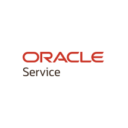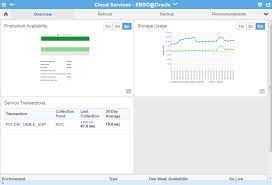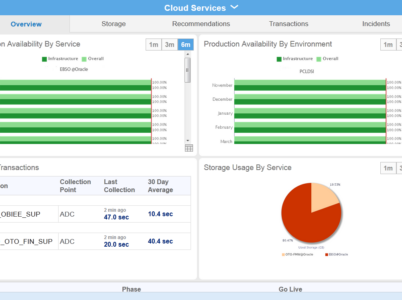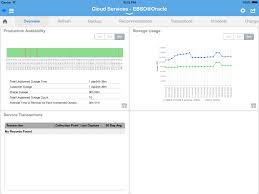Spectrum Construction Software offers a comprehensive suite of tools designed to streamline construction management processes, enhance communication, and improve productivity. In this article, we will explore various aspects of Spectrum Construction Software, including its pricing structure, key features, demo options, implementation process, training resources, support services, trial availability, user reviews, integration capabilities, and the availability of a mobile app.

- Omnichannel Support: Oracle Service Cloud enables businesses to provide support across multiple channels, including phone, email, chat, social media, and self-service portals. This omnichannel approach ensures that customers can reach out for assistance through their preferred channels, enhancing convenience and customer satisfaction.
- Knowledge Management: The platform includes robust knowledge management capabilities, allowing organisations to create, manage, and distribute knowledge articles and self-service content. This feature empowers customers to find answers to their questions independently, reducing support costs and improving efficiency.
- Case Management: Oracle Service Cloud offers comprehensive case management functionalities, enabling support agents to efficiently handle customer inquiries and track cases from start to resolution. It includes features such as case routing, escalation, and automated workflows, ensuring timely and effective case resolution.
- Service Level Agreements (SLAs): The platform allows organisations to define and enforce service level agreements to ensure timely responses and resolutions. SLAs can be customised based on specific customer segments, priorities, and service levels, enabling organisations to deliver consistent and high-quality support.
- Customer Engagement: Oracle Service Cloud offers tools to enhance customer engagement and interactions. It includes features such as customer surveys, feedback management, and social media monitoring. These capabilities enable organisations to gather customer insights, measure satisfaction levels, and proactively address any issues.
- Reporting and Analytics: The platform provides robust reporting and analytics capabilities, allowing organisations to gain insights into their customer service performance. It includes pre-built dashboards, customisable reports, and real-time analytics to monitor key metrics, track trends, and identify areas for improvement.
Salesforce Service Cloud: Salesforce Service Cloud is a robust customer service platform that offers a wide range of features for case management, self-service portals, knowledge management, and customer engagement.
Zendesk: Zendesk is a cloud-based customer service and support platform that provides features such as ticket management, live chat, knowledge base, and customer self-service portals.
Freshdesk: Freshdesk is a comprehensive customer support software that offers features for ticket management, knowledge base management, and multi-channel support, enabling organisations to deliver efficient and personalised customer service.
Oracle Service Cloud typically follows a subscription-based pricing model, where customers pay a recurring fee for access to the software and its features. The pricing may include licensing fees, implementation costs, ongoing support and maintenance fees, and any additional services requested by the customer.
It’s worth noting that Oracle Service Cloud is a comprehensive customer service and support solution that provides features such as incident management, knowledge management, self-service portals, chat and email capabilities, and more. The software is designed to enhance customer service operations and improve customer satisfaction.
When discussing pricing with Oracle, it is important to communicate your specific needs and requirements to ensure that the quote provided aligns with your business goals. Additionally, it’s advisable to inquire about any discounts, promotions, or bundled packages that may be available.
Considering the value and return on investment (ROI) that Oracle Service Cloud can provide is crucial when evaluating the pricing. The software’s robust features and functionalities, along with its integration capabilities with other Oracle products, can contribute to improved customer experiences, streamlined service operations, and increased productivity.
Oracle provides comprehensive customer support services to assist organisations using Oracle Service Cloud. Support options typically include phone support, email support, and access to a customer support portal. The support team is available to address technical issues, answer product-related questions, and provide guidance on using Oracle Service Cloud effectively. Additional support resources may include documentation, knowledge bases, and online community forums where users can interact with other users and share best practices.
Oracle Service Cloud Demo
To gain a better understanding of Oracle Service Cloud’s capabilities and user experience, organisations can request a demo. A demo allows prospective users to explore the features and functionalities of the platform, tailored to their specific requirements. During the demo, an Oracle representative showcases the key features, demonstrates use cases, and answers any questions, helping organisations assess if Oracle Service Cloud is the right fit for their customer service needs.

Oracle Service Cloud emerges as a robust solution for customer service and support, empowering businesses to deliver seamless and personalized customer experiences. This comprehensive exploration of Oracle Service Cloud covers a spectrum of key aspects, encompassing pricing details, feature highlights, support services, implementation procedures, demo opportunities, alternative solutions, trial availability, user reviews, integration capabilities, and training resources.
Requirements Gathering: During the initial phase, a thorough assessment is conducted to understand the organisation’s specific requirements, existing support processes, and goals. This step helps in determining the Oracle Service Cloud modules and configurations that align with the organisation’s needs.
Configuration and Customization: Based on the needs assessment, the software is configured and customised to match the organisation’s specific requirements. This step includes setting up service categories, defining workflows, creating custom fields, and tailoring the system to align with existing support processes.
Data Migration: The migration of existing data from legacy systems or other customer service tools to Oracle Service Cloud is crucial for a smooth transition. Data such as customer records, case histories, and knowledge articles are migrated to ensure data integrity and continuity of operations.
Integration: Oracle Service Cloud can be integrated with other systems such as CRM platforms, marketing automation tools, and e-commerce systems to streamline data exchange and provide a unified view of customer interactions. Integration ensures seamless information flow between different systems, enabling a holistic customer service experience.
Testing and Training: Before going live, thorough testing is conducted to validate the configuration, data migration, and integration processes. This step ensures that the system functions as intended and meets the organisation’s requirements. Additionally, training sessions are conducted to educate support agents and administrators on using Oracle Service Cloud effectively.
Go-Live and Post-Implementation Support: Once the implementation is complete, the organisation can start using Oracle Service Cloud in their customer service operations. Oracle provides post-implementation support to address any technical issues or questions that may arise, ensuring a smooth transition and optimal system performance.
In an era where technology reigns supreme, the construction industry is no exception to the transformation brought about by innovative software solutions. For professionals in this field, accuracy and efficiency in project estimation and STACK takeoff processes can make all the difference in the world. That's where STACK software comes into the picture, empowering construction experts to streamline their estimating and takeoff tasks like never before.
Trimble Prolog, designed by the renowned software company Trimble, is a powerful project management software tailored to the construction industry's unique demands. In this article, we'll delve deep into the world of Trimble Prolog demo, exploring its top features, Trimble Prolog implementation, Trimble Prolog support , pricing, who should consider it, and more. By the end, you'll have a comprehensive understanding of why Trimble Prolog is the solution you've been searching for.






